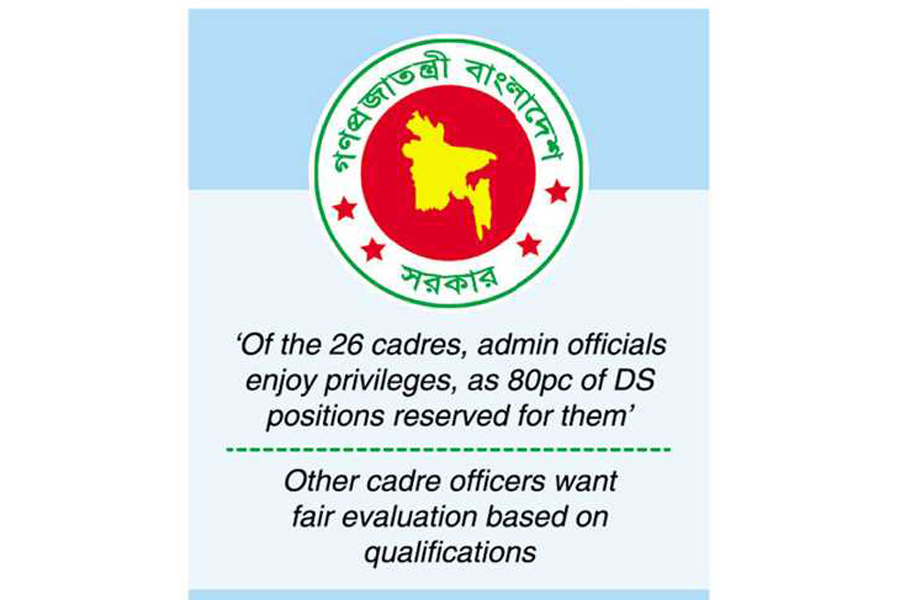
Published :
Updated :

Officials of various cadres of the Bangladesh Civil Service (BCS) have raised concerns over dominance of the administration cadre in the BCS system and demanded an end to discrimination in merit-based promotions, particularly at the deputy secretary (DS) level.
They have sought equal opportunities to serve the people while being fairly evaluated based on their qualifications.
These demands were voiced at a press conference, organised by the 'Platform to end inter-cadre discrimination' at the Sagar-Runi Auditorium of Dhaka Reporters Unity (DRU) in the capital on Saturday.
Farhana Akhter, an officer of the 24th BCS general education cadre, presented a written statement outlining the grievances. It said of the 26 cadres, the administration cadre officials enjoy significant privileges, with over 80 per cent of the DS positions reserved for them.
She called for restructuring the system to ensure that qualification and contribution of the officers of other cadres are equally recognised.
The speakers at the press conference noted that certain sectors, such as healthcare, are not effectively managed without the expertise of professionals in those fields. Decisions regarding those sectors are often made by the administration cadre officers, resulting inefficiency and crises.
The officials demanded merit-based appointments for the DS and joint secretary positions. Their other proposals included ensuring equal treatment of all cadres, elimination of inter-cadre disparities in promotion and pay-scale, maintaining rigor in electoral responsibilities, and equal opportunities in higher education, research, and scholarships.
They claimed that the officers of 25 other cadres, excluding the administration cadre, have now joined together to drum up support for these demands.
The platform also pointed out the history of cadre service reorganisation. The Bangladesh Civil Services (Reorganisation) Order of 1980, which initially organised the civil service into 14 cadres, has been expanded to 26 now.The Senior Services Pool (SSP) system was meant to complement the cadre system, ensuring appointments through merit-based examinations. However, the SSP system was never fully implemented, and the administration cadre has since monopolised promotions and appointments.
The SSP was abolished in 1989, and a quota system was introduced, reserving 245 of 377 DS positions for the administration cadre. Only 75 positions, less than 20 per cent, were made available to all other cadres.
Dr Md Mofizur Rahman, an education cadre officer, added that the administration cadre continues to dominate, and officials of other cadres face systemic discrimination.
The press conference was attended by officials from various ministries and departments.
tonmmoy.wardad@gmail.com


 For all latest news, follow The Financial Express Google News channel.
For all latest news, follow The Financial Express Google News channel.